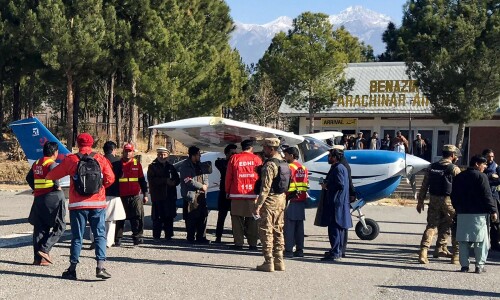IS there any political party in the entire democratic world, which has not faced a crisis; be it a crisis of leadership, of organisation, of the behaviour of cadres or, worst of all, of popular appeal? No one can pinpoint the exact nature of the crisis in the erstwhile ruling party of India, the Congress. But the main source of the crisis no one has any difficulty in pinpointing — it is the personality of its chief shrimati Sonia Gandhi. The source of her problem she does not conceal. Once in dire trouble she said: “I am the daughter-in-law of Indira Gandhi.”
The claim is puerile. As Lloyd George retorted to Lord Gladstone, son of the legendary prime minister William Ewart Gladstone, “What is the noble earl’s contribution to liberalism except in being the living proof of the liberal doctrine that quality is not hereditary?” Jawaharlal Nehru proved far superior to his father Motilal, though Motilal had qualities which Jawaharlal sadly lacked.
But the party owed little to Motilal. It did, however, to Jawaharlal, but the foundations of the ‘new’ Congress were laid later. Jawaharlal’s charisma and mass appeal united the Congress. Most of its top leaders did not share his outlook on secularism. Truth to tell, nor did most of the chief ministers who were communal to the core. Meanwhile, as early as in the 1930s, the committee on the Kanpur riots appointed by the Congress itself had characterised it as largely Hindu in composition; ergo, in outlook and ethos.
What makes, binds and unites, a party is unity in outlook, despite political differences. There is another factor — a leadership which can win the polls. It was not Jawaharlal Nehru but Vallabhbhai Patel who reflected the party’s outlook, kept its purse and held the organisation together. But he was realistic enough to know that Nehru was the darling of the masses because of his personal appeal — his sacrifices, his acceptance of life in prison despite the fact that he was born with a silver spoon in the mouth. Mass appeal mattered. He it was who could win the elections. It is the one who secures for the ordinary member of parliament or the state legislatures his seat in the legislature central or state who commands loyalty.
Internal party elections are very rare in India; rarer still in the Congress.
But the leader himself would be helpless without the party organisation, the run-of-the-mill party worker, the man who toils all day in the party office and — the janbaz, the one who would sacrifice his life for the party — supposedly.
Right now the Congress is in a deep crisis. Some of its best brains like the brilliant lawyer Kapil Sibal and the man for all seasons Ghulam Nabi Azad left the party.
Sonia’s passions centre on her children — daughter Priyanka and son Rahul. Neither has made any contribution to policy or, for that matter, the process of policymaking within the Congress. The party is based on the personality cult. Internal party elections are very rare in India; rarer still in the Congress. For long, the president was not elected but was anointed by the favourites of the president. Now elections are due. We shall watch.
The late chief election commissioner, S.L. Shakhdhar, had commented on such a state of affairs in 1980. He said: “Political parties make strong demands for the conduct of free and fair elections tolegislative bodies, but choose to ignore the application of the same principles when it comes to the functioning of their own party organs. It has been revealed before me in various cases that I had occasion to hear that parties do not follow their own constitutions. They hold no party elections. They function for years on an ad hoc basis. Sometimes there has been a tyranny of the minority over the majority … I, therefore, suggest that there should be parliamentary legislation making it obligatory on the part of every political organisation to register their body and regulate their functioning by laying down broad outlines and norms.” These words fit the Congress to perfection.
Later, he presented his report on the general elections of 1980 and repeated his criticism in this formal document which he presented to parliament. He listed three major defects in that report. One was that “even the observance of the basic provisions of the constitution of the party is absent”; the second was that no organisational elections were held for years. These defects accurately and authoritatively described decades ago continue still, 40 years later.
The press, political scientists and the entire community of public intellectuals are silent for the most part. Silence has overcome those who have a voice in society — a fact that is tragically true of others matters of public concern as well.
The writer is an author and a lawyer based in Mumbai.
Published in Dawn, October 15th, 2022











































